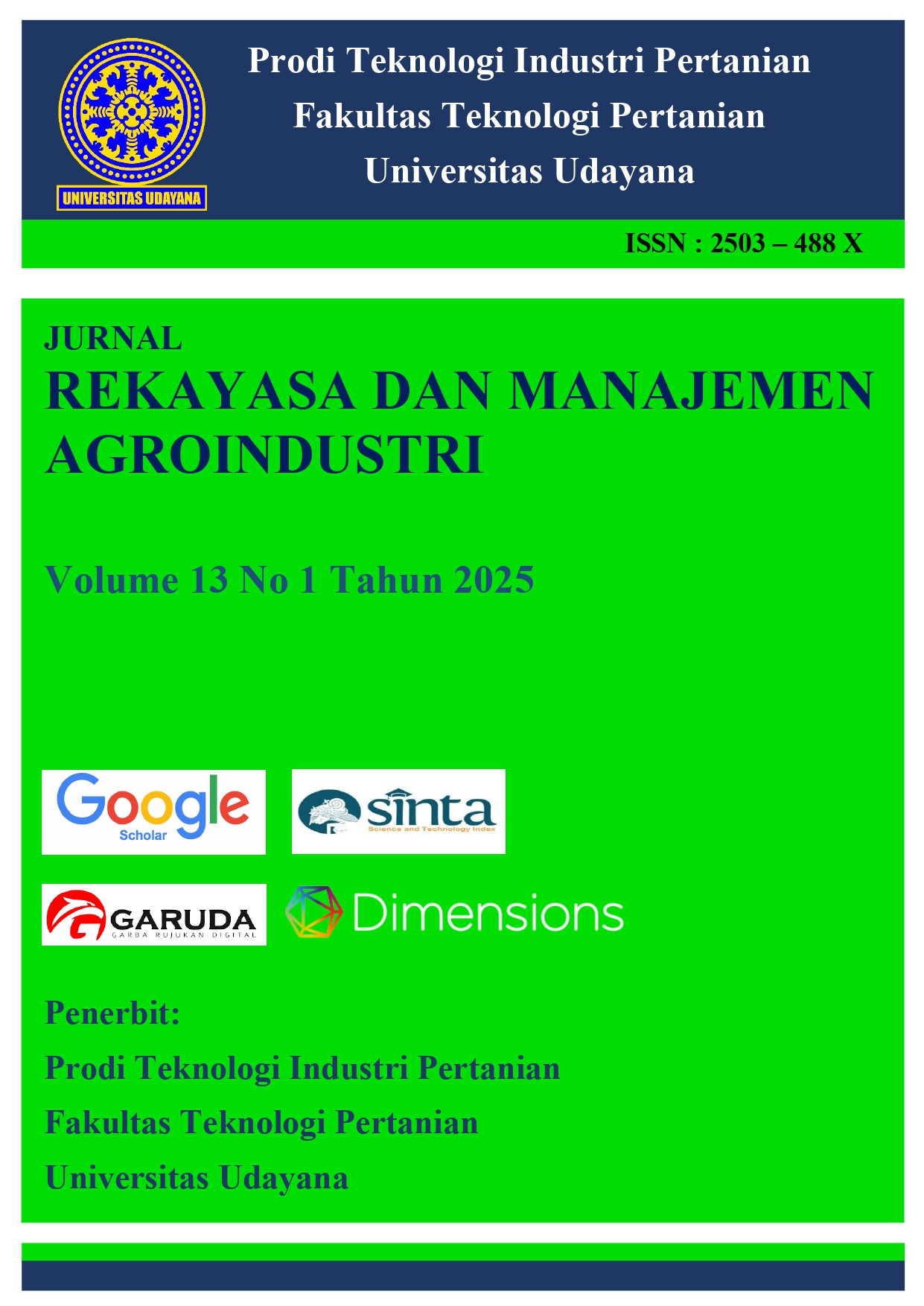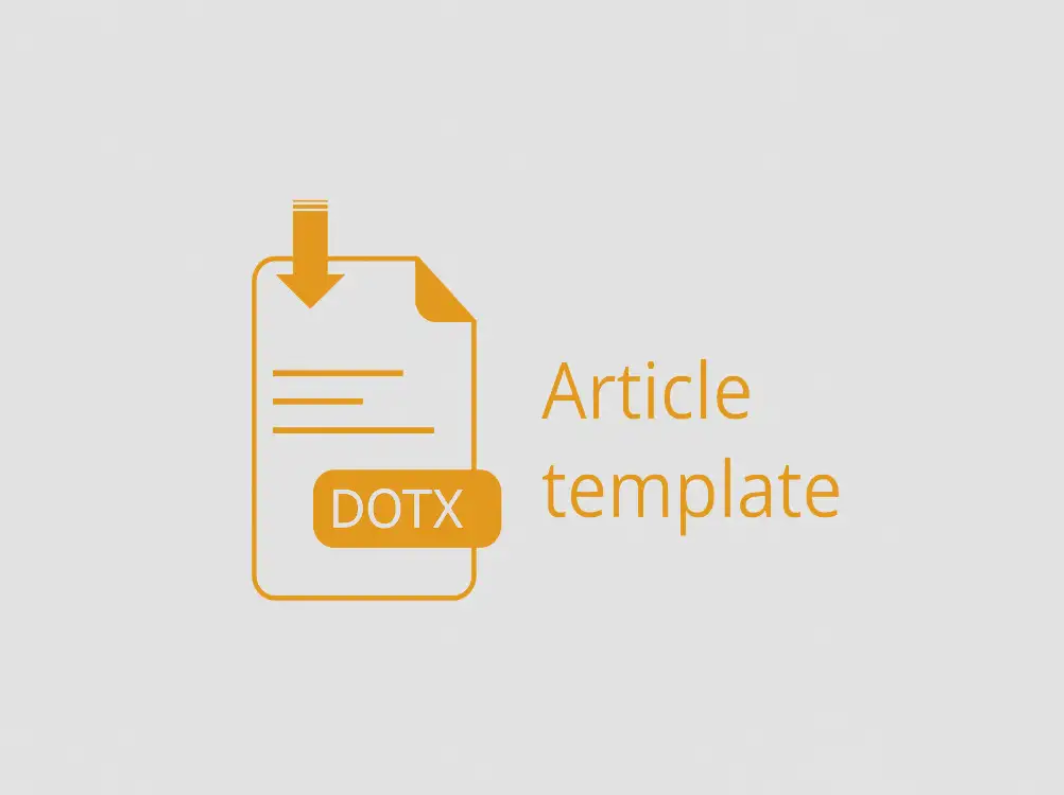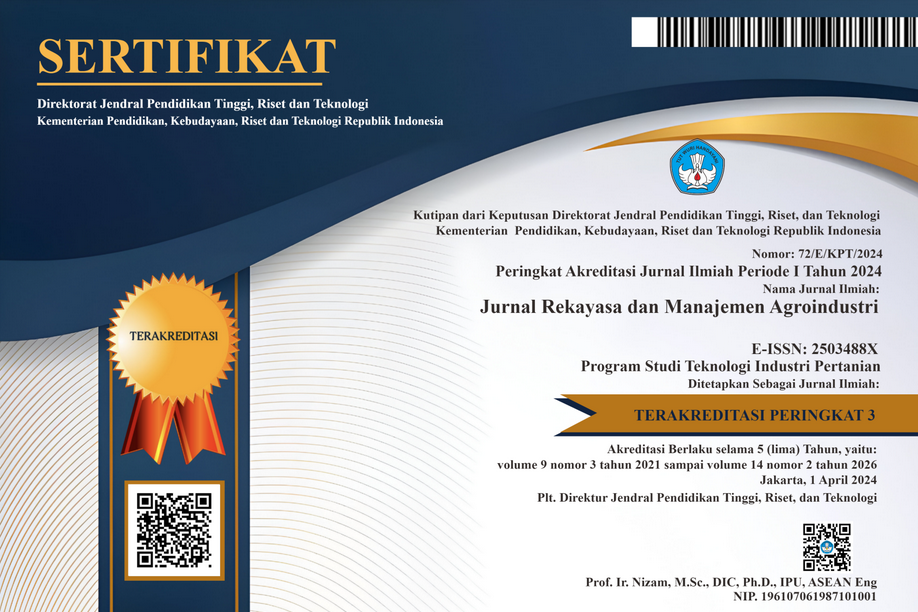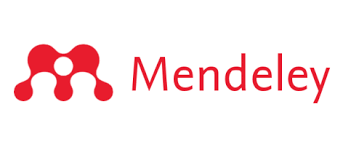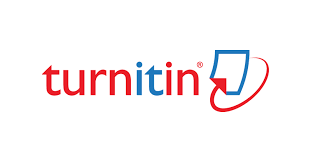Analisis Dampak Perspektif Pelaku Usaha Dan Tim RPA Ponorogo Terhadap Implementasi Sertifikasi Halal Menggunakan Structural Equation Modeling (SEM)
Abstract
Products with halal certification have become a decisive factor in consumer purchasing decisions, driven by growing public awareness regarding the halal status of food and beverages. This phenomenon aligns with the implementation of the Halal Product Assurance Law that came into effect on October 17, 2019, which is mandatory for all business entities, including large, medium, small, and micro enterprises. In this context, halal supply chains are partly evaluated based on raw materials that comply with halal rules and requirements established by the Indonesian Ulema Council (Majelis Ulama Indonesia / MUI). This situation encourages culinary business operators in Ponorogo Regency to raise awareness about producing food with Halal certification. Satay, as a culinary product with chicken meat as its main component, requires special attention regarding the perspectives of Chicken Slaughterhouse (RPA) business operators on halal certification, given their position as providers of basic ingredients in the production chain. The implementation of these regulations has generated various responses from entrepreneurs, including RPA managers. This study aims to explore the perspectives of RPA managers on the implementation of halal certification in the Ponorogo area and the factors that influence their views. A qualitative approach was applied in this research, with data collection through direct observation, in-depth interviews, and documentation. The analysis results indicate that external elements play a dominant role in shaping perspectives that subsequently form the basis for individual actions.
Keywords: SEM, Business Actors, RPA, Halal Certification, FGD
Makanan ataupun minuman yang memiliki sertifikat halal menjadi salah satu faktor penentu keputusan pembelian oleh konsumen, hal ini didorong oleh meningkatnya kepedulian masyarakat terhadap aspek kehalalan sebuah produk. Fenomena ini selaras dengan pemberlakuan Undang-Undang jaminan produk halal yang mulai diterapkan sejak 17 Oktober 2019 dan bersifat wajib bagi semua pelaku usaha, termasuk usaha besar, menengah, kecil, dan mikro. Dalam konteks ini, rantai pasok halal salah satunya dinilai dari bahan baku yang mematuhi aturan dan persyaratan kehalalan yang ditetapkan oleh MUI. Kondisi tersebut mendorong pelaku usaha kuliner Kabupaten Ponorogo untuk kesadaran memproduksi makanan dengan sertifikasi Halal. Sate sebagai kuliner dengan komponen utama daging ayam memerlukan perhatian khusus terkait pandangan pelaku bisnis Rumah Potong Ayam (RPA) tentang sertifikasi halal, mengingat posisinya sebagai penyedia bahan dasar dalam mata rantai produksi. Implementasi regulasi tersebut memunculkan tanggapan beragam dari kalangan wirausaha termasuk pengelola RPA. Studi ini ditujukan untuk mengeksplorasi pandangan pengelola RPA terhadap penerapan sertifikasi halal di kawasan Ponorogo beserta faktor-faktor yang memengaruhinya. Pendekatan kualitatif diaplikasikan dalam penelitian ini dengan penghimpunan data melalui observasi langsung, dialog mendalam, dan dokumentasi. Hasil analisis menunjukkan bahwa elemen-elemen eksternal memiliki signifikansi dominan dalam membentuk sudut pandang yang kemudian menjadi dasar tindakan individu.
Kata kunci: SEM, Pelaku Usaha, RPA, Sertifikasi Halal, FGD
Downloads
References
Abuzaid, H., AbuMoeilak, L., and Alzaatreh, A. 2024. A structural equation modeling of customer attitudes towards residential solar initiatives in Jordan. Social Sciences & Humanities Open, 10, 101038. https://doi.org/10.1016/j.ssaho.2024.101038
Amanathi, A., Setiawan, E., and Usman, M. 2023. Goodness Of Fit Test In Structural Equation Modeling with Unweighted Least Square (ULS) Estimation Method. Sciencestatistics Journal of Statistics, Probability, and Its Application , 1(2), 65–73. https://scholar.ummetro.ac.id/index.php/sciencestatistics/index
Aslan, H. 2023. The influence of halal awareness, halal certificate, subjective norms, perceived behavioral control, attitude and trust on purchase intention of culinary products among Muslim costumers in Turkey. International Journal of Gastronomy and Food Science, 32, 100726. https://doi.org/https://doi.org/10.1016/j.ijgfs.2023.100726
Astuti, R., dan Hakim, M. A. 2021. Pengaruh Label Halal dan Ketersediaan Produk Terhadap Keputusan Pembelian Konsumen pada 212 Mart di Kota Medan. MANEGGIO: Jurnal Ilmiah Magister Manajemen , 4(1). https://doi.org/10.30596/maneggio.v4i1.6719
Ayatulloh Michael Musyaffi, Hera Khairunnisa, dan Dwi Kismayanti Respati. 2022. Konsep dasar structural equation model-partial least square (sem-pls) menggunakan smartpls. Pascal Books.
Babatunde, Adeniyi, and Adeyemi. 2024. Reliability and Validity in Quantitative Research. Advances in educational technologies and instructional design book series.
Dawam, K., and Iswandi, A. 2023. Analysis of The Factors That Influence The Perceptions of Culinary Business Owners Regarding Intention to Register For Halal Certificates. Perisai : Islamic Banking and Finance Journal, 7(2), 143–176. https://doi.org/10.21070/perisai.v7i2.1663
Dinas Kominfo. 2024. Jumlah Unit Pemotongan Ternak di Jatim sebanyak 200 Unit. Retrieved August 26, 2024, from https://kominfo.jatimprov.go.id/berita/jumlah-unit-pemotongan-ternak-di-jatim-sebanyak-200-unit
Durrotul, H., Riset, F. P., Pengembangan, D., dan Halal, P. 2019. Sertifikasi Halal di Indonesia: Sejarah, Perkembangan, dan Implementasi. Journal of Halal Product and Research, 2(2), 68–78.
Evinda Yuleha, R., dan Reza Adiyanto, M. 2022. Faktor-Faktor yang Memengaruhi Halal Awarness Pelaku Usaha Pangan di Pulau Madura. Jurnal Ekonomi Dan Bisnis, 11(4).
Faishal, M., Mohamad, E., Asih, H., Abdul Rahman, A. A., Irawan, F., Adiyanto, O., and Linarti, U. 2024. Investigating factors of the purchase intention of slaughterhouses for Halal Certification in Yogyakarta, Indonesia. Multidisciplinary Science Journal, 6, 2024266. https://doi.org/10.31893/multiscience.2024266
Gupta, K. 2023. Validity and Reliability of Students’ Assessment: Case for Recognition as a Unified Concept of Valid Reliability. International Journal of Applied & Basic Medical Research, 13, 129–132. https://doi.org/10.4103/ijabmr.ijabmr_382_23
Haji-Othman, Y., and Sheh Yusuff, M. S. 2022. Assessing Reliability and Validity of Attitude Construct Using Partial Least Squares Structural Equation Modeling (PLS-SEM). International Journal of Academic Research in Business and Social Sciences, 12. https://doi.org/10.6007/IJARBSS/v12-i5/13289
Harun, N. H. binti, Idris, N. A. Z., and Mohamed Bashir, A. 2023. Factors Influencing Halal Food Products Purchasing among Young Adults According to Theory of Planned Behavior. International Journal of Academic Research in Business and Social Sciences, 13(1). https://doi.org/10.6007/ijarbss/v13-i1/14809
Hendayani, R. 2024. Halal Supply Chain Growth. In Reference Module in Social Sciences. Elsevier. https://doi.org/https://doi.org/10.1016/B978-0-443-13701-3.00102-X
Joseph F. Hair JR., William C. Black, Barry J. Babin, and Rolph E. Anderson. 2019. Multivariate Data Analysis 9th Edition (9th ed.). Cengage Learning, Cheriton House, NW.
Khoirul Anwar, M. 2020. Respon Pelaku Usaha Rumah Potong Ayam Terhadap Kewajiban Sertifikasi Halal. Jurnal Hukum Syariah, 3(1), 27–39.
Kholili, A., Ibnu, D., Indriani, E., Solihat, N., Studi, P., Syariah, E., Gunung, S., dan Bandung, D. 2021. Pentingnya Rumah Potong Ayam Halal. Jurnal Likuid, 1(1), 11–22.
Kurniawati, D. A., and Cakravastia, A. 2023) A review of halal supply chain research: Sustainability and operations research perspective. Cleaner Logistics and Supply Chain, 6. https://doi.org/10.1016/j.clscn.2023.100096
Lastani, A., Putri, S., Hidayat, H. H., Siswantoro, S., and Wijayanti, N. 2023. Proceeding ICMA-SURE-2023 The 5 th International Conference on Multidisciplinary Approaches for Sustainable Rural Development 100 Motivating Factors Analysis for Halal Certification on the Catering and Restaurant Services in Banyumas Regency. 5th International Conference on Multidisciplinary Approaches for Sustainable Rural Development, 100–108. www.halalgourmet.jp
Li, T., Xiong, W., Du, J., Nie, B., Luo, J., Yang, Y., and Chen, C. C. 2020. Partial Least Squares Optimization Method and Path Analysis Integration for Chinese Medicine Data. Sensors and Materials, 32, 3463. https://doi.org/10.18494/SAM.2020.2931
Milah, J., Rahayu, F. A., Deswita, R., dan Fatimah, W. S. 2024. Pengaruh Halal Awarness dan Label Halal Terhadap Keputusan Pembelian Konsumen. AL-MUSAHAMAH: Journal of Islamic Economics, Finance, and Business, 1(1). https://doi.org/10.37058/ams.v1i1.11747
Mohd Dzin, N., and Lay, Y. 2021. Validity and Reliability of Adapted Self-Efficacy Scales in Malaysian Context Using PLS-SEM Approach. Education Sciences, 11, 676. https://doi.org/10.3390/educsci11110676
Muawwanah, S. H., dan Makhtum, A. 2022. Analisis Persepsi Sertifikasi Halal Pada Pelaku Usaha Kecil Mikro Di Kabupaten Sumenep. Jurnal BILAL: Bisnis Ekonomi Halal, 3(2), 140–148. http://ojs.polmed.ac.id/index.php/Bilal/index
Muhamad Muhamad. 2020. Tantangan Dan Peluang Penerapan Kebijakan Mandatory Sertifikasi Halal (Studi Implementasi Uu No. 33 Th. 2014 dan Pp No. 31 Th. 2019). Jurnal Ilmu Ekonomi Dan Bisnis Islam, 2(1), 1–26.
Owolabi, H. O., Ayandele, and Olaoye, D. D. 2020. A Systematic Review of Structural Equation Model (SEM). Journals of Educational Development (OJED) . www.openjournalsnigeria.org.ng
Reza, S., Hasda, M., Syaipuddin, M., Rizki, S. M., dan Syariah, P. 2024. Persepsi Konsumen Terhadap Keinginan Pembelian Produk Halal Di Kota Pekanbaru. In General: Multidisciplinary Research Journal (Vol. 1, Issue 2). https://money-id.com/index.php/money/index
Sasaki, D., Taafaki, I., Uakeia, T., Seru, J., McKay, Y., and Lajar, H. 2019. Influence of Religion, Culture and Education on Perception of Climate Change and its Implications: Applying Structural Equation Modeling (SEM). Journal of Disaster Research, 14, 1303–1308. https://doi.org/10.20965/jdr.2019.p1303
Tedjakusuma, A. P., Au Yong, H. N., Andajani, E., and Mohamad, Z. Z. 2023. Intention to purchase halal health supplement online: Lessons learned from the health crisis. Heliyon, 9(9). https://doi.org/10.1016/j.heliyon.2023.e19840
Widitya Qomaro, G. 2018. Sertifikasi Halal dalam Persepsi Konsumen pada Produk Pangan di Kabupaten Bangkalan. Kabilah, 3(2), 241–251.
Wisudawati, N., Gustianda, A., Wahyudi, B., Industri, T., dan Artikel, I. 2024a. Pendekatan Structural Equation Modeling (SEM) Pada Analisis Pengaruh Kualitas Layanan Terhadap Kepuasan Dan Loyalitas Pelanggan: Studi Kasus. INTEGRASI : Jurnal Ilmiah Teknik Industri, 9(1), 24–29. https://doi.org/10.32502/js.v9i1
Wisudawati, N., Gustianda, A., Wahyudi, B., Industri, T., dan Artikel, I. 2024b. Pendekatan Structural Equation Modeling (SEM) Pada Analisis Pengaruh Kualitas Layanan Terhadap Kepuasan Dan Loyalitas Pelanggan: Studi Kasus Structural Equation Modeling (SEM) Approach to Analysis the Effect of Service Quality on Customer Satisfaction and Loyalty : A Case Study. Integrasi Jurnal Ilmiah Teknik Industri, 09(01), 24–29. https://doi.org/10.32502/js.v9i1
Wooldredge, J. 2023. Structural Equation Modeling. Oxford University Press. https://doi.org/10.1093/acrefore/9780190264079.013.839

Ciptaan disebarluaskan di bawah Lisensi Creative Commons Atribusi-BerbagiSerupa 4.0 Internasional.
Seluruh artikel di Jurnal ini dapat disebarluaskan atas tetap mencantumkan sumber yang syah. Identitas judul artikel tidak boleh dihilangkan. Penerbit tidak bertangggung jawab terhadap naskah yang dipublikasikan. Isi artikel menjadi tanggung jawab Penulis.

